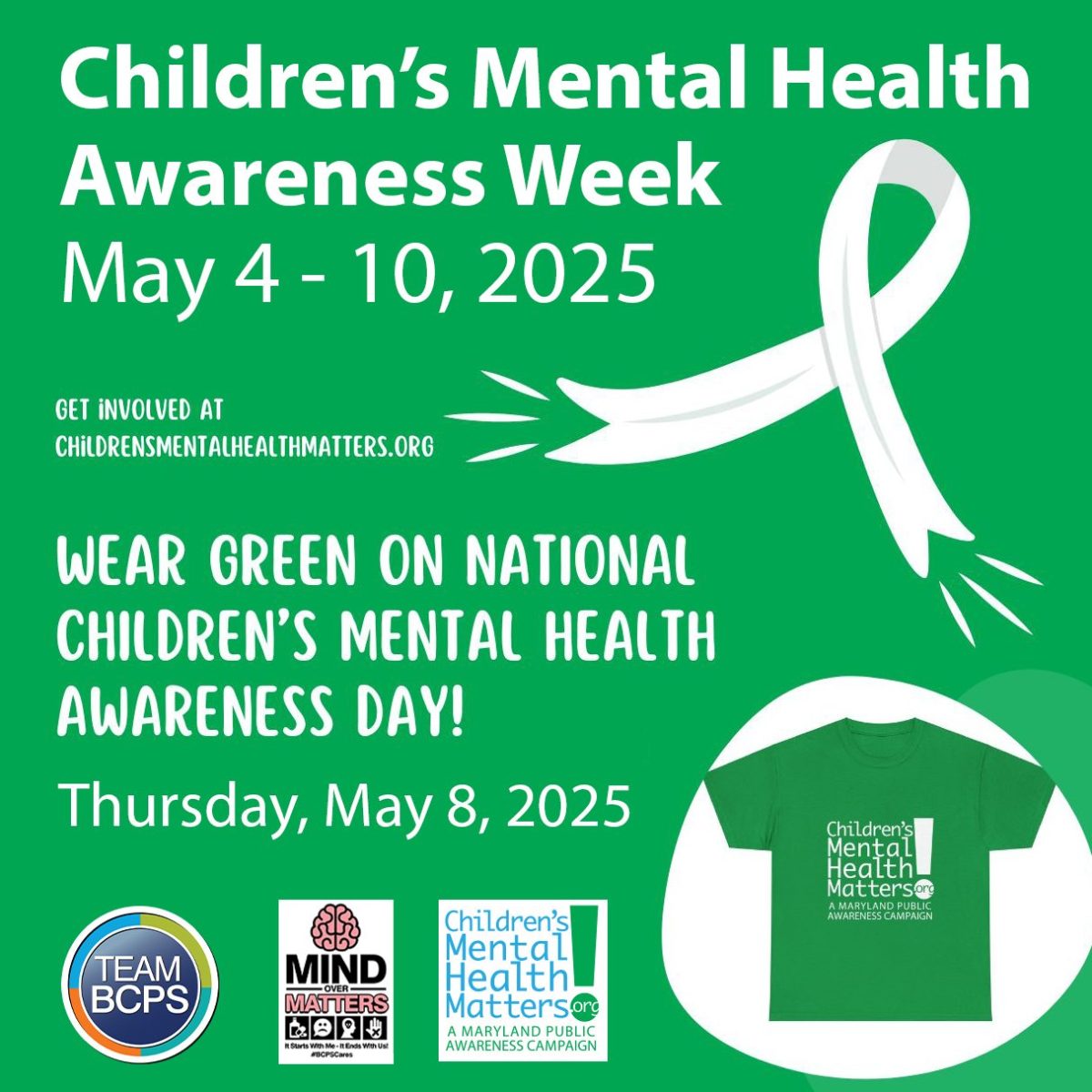May is Mental Health Awareness month and May 4-10 is Children’s Mental Health Awareness Week. To help raise awareness wear green on Children’s Mental Health Awareness Day on May 8.
BCPS’s Mind over Matters Campaign provides many resources for schools and families to access mental health resources. According to the CDC “1 in 7 children ages 3 to 17 (13%) had a current, diagnosed mental or behavioral health condition.” While that might not seem like many, that’s just represents how many children have been reported or been examined/tested, as many families around the world don’t have the resources to care for a child with different kinds of mental health needs. The study included results of children and teenagers with depression, anxiety, and other behavioral disorders.
Every individual’s journey with mental health is unique and understanding the different experiences can help us support one another. As stated by the Mayo Clinic, “Depression is typically described as feelings of extreme sadness, worthlessness or hopelessness, loss of appetite, difficulty concentrating, and insomnia or excessive sleeping.” Signs of depression can also present as a loss in habits or hobbies a child had previously enjoyed. Depression can also vary in severity in which for some it may take months but for others years to recover from depression.
There are many ways some people try to cope with depression and anxiety but those aren’t always the healthiest options. Some might indulge in food, others spend excessive time on social media platforms to recreate the comfort or companionship that eases the sadness of depression, though these coping strategies creates their own problems and often further deepens their depression as they become more dependent on the methods they use to cope. To people who are able to get help which can be a struggle at times due to health insurance hurdles, they often turn to therapy or prescribed antidepressants. There are health and unhealthy ways to deal with mental illnesses, and it is very important to know and get help as soon as possible.
There is no single cause for mental health concerns. A number of factors can contribute to being at risk for mental health concerns like depression or anxiety. The National Institution of Health states, “early trauma or abuse in life, chronic medical conditions, or the incorrect use of alcohol or drugs can lead to mental health concerns”. The challenges faced by people with mental health concerns can vary to many kinds of challenges including slower learning rates, difficulties with communication and social skills, and worrisome in managing daily activities and understanding abstract concepts.
A Kenwood teacher anonymously shared, “Therapy is important and works. It is helpful to talk things out with a professional. It may be uncomfortable at first, but it gets easier.” This highlights that while facing mental health challenges can be difficult, they are ways to help, such as therapy. The teacher also adds, “Mental health is as important as physical health. As a matter of fact, poor physical health can cause mental health issues and not addressing mental health can lead to physical health symptoms.”
Another teacher expressed, “I think therapy should be a regular part of a child’s education, and in the same way that people often have medical doctors they see periodically, it would be ideal if everyone had a therapist they could rely on.”
It is always necessary for someone to have a healthy way of expressing feelings, concerns, and grievances. Self-care, seeking professional help when really needed, safe and reasonable coping skills, organizing social life/interactions, and practicing gratitude are all ways to take care of one’s self as doing these things are ways to keep your mental health at the best it can be.
“The strongest people are those who win battles we know nothing about.” Take this as your sign to care for yourself and those around you, and remember, everyone deserves happiness and peace of mind.






